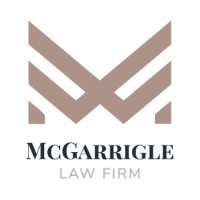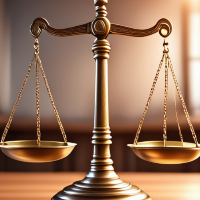 Honey Brook White Collar Crime Lawyers, Pennsylvania
Honey Brook White Collar Crime Lawyers, Pennsylvania
Sponsored Law Firm
-
 x
x

Click For More Info:
Call for Free Consultation
-
Law Offices of Christopher Bokas
20 West Third Street Media, PA 19063 » view mapCriminal Defense, DUI, Felonies, Misdemeanors Why Christopher Bokas?
At Law Offices of Christopher Bokas, we offer services in Criminal Law and Bankruptcy Law. With over 35 years of experience in the field I can help you.
800-997-6550  Christopher Bokas Media, PA
Christopher Bokas Media, PAAttorney At Law - PA, 1975
University of Baltimore School of Law
Sponsored Lawyers
1-10 of 11 matches
Military & Veterans Appeals, White Collar Crime, DUI-DWI, Criminal
Attorney Daniel McGarrigle is an aggressive advocate and experienced litigator; he has tried hundreds of cases and handled all types of criminal matters, from misdemeanors to major felony trials. Mr. McGarrigle prides himself on preparing every aspect of every case for trial and has spent his entire career practicing solely criminal defense. Clients know that Daniel McGarrigle is a very responsive attorney, keeps client fully informed, and always gets back to them in a timely manner.
(more)Criminal, Felony, Misdemeanor, DUI-DWI, White Collar Crime
Zak Goldstein is a Philadelphia criminal defense and civil rights attorney. Zak Goldstein has experience trying hundreds of cases before judges and juries, and he has represented clients in both state and federal court. He has successfully obtained full acquittals for his clients in both bench and jury trials. When appropriate, he has also been able to obtain favorable non-trial dispositions such as the dismissal of charges, entry into diversionary programs, or negotiated pleas to significantly reduced charges. Prior to entering private practice, Zak Goldstein was an Assistant Defender with the Defender Association of Philadelphia; one of the most well regarded and highly trained public defender offices in the country. As a defender, he represented thousands of clients charged with crimes ranging from simple misdemeanors to the very most serious and complex felonies. After leaving the Defender Association, he worked as an associate for a nationally recognized AmLaw 200 law firm specializing in complex civil litigation. Zak Goldstein started his own practice because he is passionate about defending the constitutional rights of the accused and helping victims of police misconduct obtain justice. He is an experienced advocate who will fight hard for your rights in order to make sure that you have every possible advantage when dealing with the power of the police and the prosecutor. Zak Goldstein is an award winning criminal defense attorney. He is ranked as a Top Attorney in Criminal Defense with the highest Avvo rating of Superb. He was also recently selected as one of the National Trial Lawyers: Top 40 under 40 in criminal defense. Attorney Goldstein graduated summa cum laude from Moravian College with a degree in Economics and a minor in Spanish. He graduated magna cum laude from Villanova University School of Law, where he was an associate editor of the Villanova Law Review. During law school, Mr. Goldstein completed internships with the Philadelphia District Attorney’s Office and a boutique law firm specializing in white collar criminal defense. Attorney Goldstein is admitted to practice law in Pennsylvania, New Jersey, and the Eastern District of Pennsylvania. He is an active member of the legal community, and he maintains memberships in the Pennsylvania Association of Criminal Defense Lawyers, the Philadelphia Criminal Law Inn of Court, the American Bar Association, the New Jersey State Bar Association, and the Philadelphia Bar Association.
(more)Criminal, Felony, White Collar Crime, Federal Trial Practice, Federal Appellate Practice
If you are facing criminal charges in the Pennsylvania state or federal courts, you want a law firm with the experience, guts and the dedication to fight for you. That is the Law Office of Richard J. Fuschino, Jr. Defense attorney Richard J. Fuschino, Jr. is a former prosecutor with a decade of experience defending people in criminal court and on appeal. If your case goes to trial, he will personally handle your defense and stand by your side in the courtroom. Mr. Fuschino has handled hundreds of cases in Pennsylvania and New Jersey, in federal and appellate courts, in jury trials, bench trials, and in hearings before administrative boards and administrative law judges. Mr. Fuschino has handled the gambit of criminal cases – homicides, drug cases, complicated federal regulation violations, and every sexual offense in the state of Pennsylvania.
(more)




 Christopher Bokas Media, PA
Christopher Bokas Media, PA



